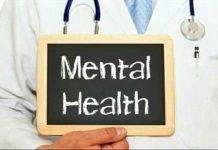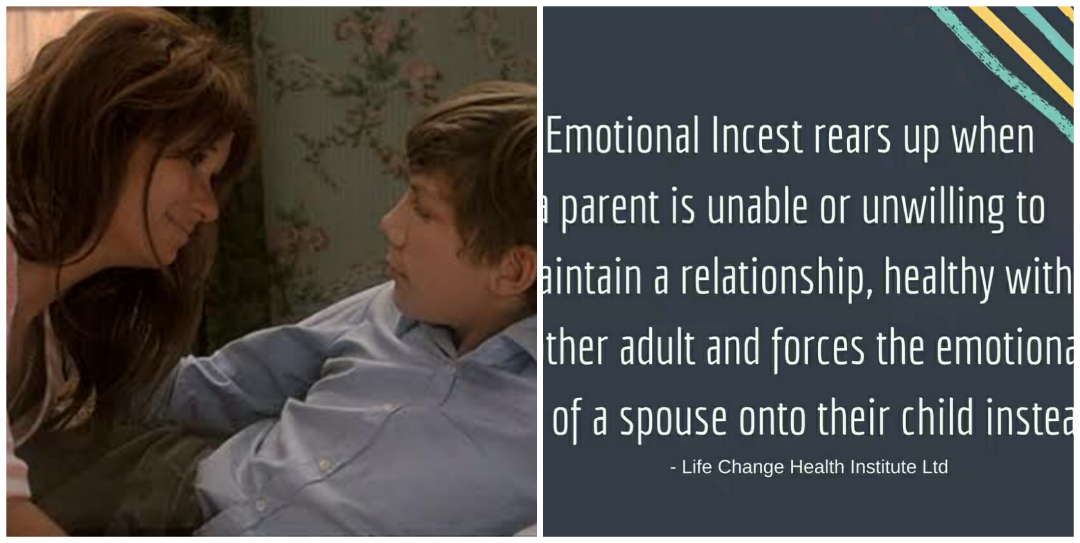Depression is the commonest mental disorder and a public health concern in Nigeria and the world today. No wonder the World Health Organization (WHO) have declared this mental illness as the theme for this year. The campaign slogan of WHO this year is ‘Depression: Let’s Talk’, and this was released on the World Mental Health Day of last year. Indeed let’s talk depression, an illness estimated to affect over 300 million people globally, equivalent of 4.4% of the World population. From recent data published by the World Health Organisation, Nigeria is the most affected by depression in Africa with over 7million sufferers meaning about 3.9 percent of Nigerians are depressed. The consequences of depression in terms of like lost health and reduce quality of life are huge. Depression is ranked by WHO as the single largest contributor to global disability (7.5% of all years lived with disability in 2015); anxiety disorder was ranked 6th (3.4%). Depression is the major cause of suicide deaths, with number close to 800,000 per year.
Meaning of depression, depression medical definition
Depression, referred to as low mood by some authors is a serious medical illness that negatively affects feeling, thinking and actions. It is an illness characterized by persistent sadness and a loss of interest in activities that you normally enjoy, accompanied by inability to carry out daily activities that, for at leasttwo weeks. Fortunately, it is also treatable.
Depression is different from sadness or grief/bereavement or low ( though sometimes used interchangeably). The death of a loved one, loss of a job or the ending of a relationship are difficult experiences for a person to endure. It is normal for feelings of sadness or grief to develop in response to such situations. Those experiencing loss often might describe themselves as being “depressed.” But being sad is not the same as being depressed. The grieving process is natural and unique to each individual and shares some of the same features of low mood. Both grief and depressive disorder may involve intense sadness and withdrawal from usual activities.
Global/Nigeria Statistics of depression
The global prevalence of depression (2015) was 4.4%. Prevalence varies with WHO region, from a low of 2.6% among males in the Western Pacific Region to 5.9% among females in the in the African Region. There is empirical evidence that the prevalence of depression is on the increase. The total estimated number of people living with depression increased by 18.4% between 2005 and 2015.
Depression affects an estimated 1 in 15 adults (6.7%) in any given year. And 1 in 6 people (16.6%) will experience depressive episodes at sometime in their life.
The statistics for Nigeria is equally worrisome. Depressive disorders was the 3rd most common cause of disability in Nigeria as at 2015.
The prevalence of depression in Nigeria is estimated to be 5.2% (2010). The lifetime and 12-month estimates of major depressive episodes were 3.1% and 1.1%, respectively.
Male or female, old or young, who is affected more by depressive disorders?
Depressive episodes can strike at any age, but on average, it first appears during the late teens to mid-20s. Women are more likely than men to experience low mood. Some studies show that one-third of women will experience a major depressive episode in their lifetime.
More on Nigeria depression statistics from recent data published by the WHO
As culled from the Guardian and the Nation Newspapers, figures released by the World Health Organization (WHO) in 2017 have seen Nigeria slumped from the rank of being the happiest people on earth to the most depressed in Africa. The WHO depression statistics has shown that 7,079,815 people suffer from depression; meaning 3.9% of Nigerians are depressed while about 5million people suffers from anxiety disorders. Little wonder the rate of Suicide deaths have been on the rise. According to police reports, about 67 persons have committed suicide traced to depressive illnesses and other mental disorders year 2017 alone in Nigeria. The country is closely followed by Ethiopia with 4.4 million sufferers, Democratic Republic of Congo with about 3million sufferers, and Tanzania with 4.1% of their population.
Sychelles have the least number of depressed people in the world.
This brief statistics shows we should take mental illnesses more seriously in Nigeria.

Risk factors/causes of depression in Nigeria
Depression can affect anyone-even a person who appears to live in relatively ideal circumstances.
Several factors can play a role in depressive disorders as described under the following sub-headings:
1.Biochemistry
Differences in certain chemicals in brain may contribute to symptoms of depressive disorder.
2. Genetics
Low mood can run in families. For example, if one identical twin has depression, the other has 70% chance of having the illness sometime in life.
3.Personality
People with low self-esteem, who are easily overwhelmed by stress, or are generally pessimistic appear to be more likely to be depressed in their lifetime.
4.Environmental factors
Continuous exposure to violence, neglect, or abuse may make some people more vulnerable to depression
5. Economic depression/recession
Economists, sociologists, and public affairs analysts are of the opinion that the current economic downtown, inflation, unemployment,and unemployment are contributors to the recent upsurge of depressive disorders, suicides and attempted suicides in Nigeria.
Symptoms and signs of depression
People with depressive disorders normally have several of the of the following symptoms:
- a loss of energy
- a change in appetite
- sleeping more or less
- anxiety
- reduced concentration
- indecisiveness
- restlessness
- feelings of worthlessness, guilt, or hopelessness; and
- thoughts of self-harm or suicide
Management/prevention of depression in Nigeria
Untreated depression can prevent people from working and participating in family and community life. At worst, depressive episodes can lead to suicide. Depression can be effectively prevented and treated.
Depression treatment in Nigeria usually involves either a talking therapy or antidepressant medications or a combination of these. Depressive disorders in Nigeria can be managed using public health prevention strategies (primordial, primary, secondary, tertiary, surveillance and research).
The primordial level of prevention involves addressing socioeconomic, structural, cultural, spiritual and physical route causes of depression. This is done by ensuring the development and implementation of policies like the Mental Health act of 2013 focused on eliminating the risk factors of depression in our environment.
Though policies like the Nigerian Mental Health Law aimed at addressing mental health disorders exist today, but the structures for eventual implementation are lacking.
Another aspect is the training of human resources necessary to manage depressive disorders.
High level specialists such as psychiatrists, psychologists, professional counsellors, etc. are few in our settings as such medical undergraduates should be encouraged to specialise in these areas of medical practice.
READ ALSO: HARMFUL TRADITIONAL PRACTICES IN NIGERIA AND IT AFFECTS HEALTH
The primary prevention of low mood would include public health education. This is why the theme for year 2017 World Health Day is apt. Let us talk about depressive disorders in homes, community gatherings, schools, and through mass media (including the social media platforms). Furthermore, civil society organizations are major stakeholders in pushing for legislative provisions through advocacy to politicians.
Early diagnosis and prompt treatment remains the hallmark of management of depressive disorders. Depressive disorders can be diagnosed early if family members and friends are well educated and informed on early signs and symptoms.
Effective means of treatment include; providing counselling units in places of learning and work, promoting group psychotherapy sessions involving professional psychologists.
Overcoming stigmatization by depressed persons
Overcoming the stigma often associated with mental illnesses will lead to more people getting help. Breaking down discriminatory barriers and stigmatization of persons with clinical depression is of utmost necessity.
Surveillance of the causes of depression
Active surveillance of the risk factors of depression is necessary and the government should ensure there are institutions and agencies charged with this task in an integrative and comprehensive manner.
Researches on depressive disorders in Nigeria
Researches into depressive disorders in Sub-saharan Africa(Nigeria) are few. These researches help to provide the needed data that will ensure accurate measure of the burden of the disease in our environment and also help to identify specific risk factors for depression.
Mental health Law in Nigeria
According to Wikipedia, the Nigeria mental health law (formerly called the mental health act of 2013) is a policy statement and guiding principles aimed at advocacy, protection (from stigma and discrimination), promotion, prevention(of causes and risk factors of mental illnesses), treatment and rehabilitation of the mentally ill individuals in Nigeria. The law protects the fundamental human rights and dignity of the persons with mental disorders and grants them unhindered access to prompt treatment in mental health facilities in Nigeria. Training and re-training of mental health professional is also a content of this act that was passed into law in 2013. About 4 years after the mental health bill was passed into law to bring succour to the mental health challenges and practice in Nigeria, very little progress have been made.
Just like every other robust law in Nigeria, implementation and lack of political will by past and present governments have always hindered our curbing mental health challenges in Nigeria.
Conclusion
Depressive disorders and other mental illnesses are major public health problems in Nigeria. The prevalence is on the increase and it is still a disease of stigma in our societies. Fortunately, it is treatable and manageable. The hallmark of the management is simply to start a conversation and talk about it.
Resources:
1. Depression and other Common Mental Disorders: Global Health Estimates. Geneva World Health Organization; 2017. Licence: CC BY- NC-SA 3.0 IGO.
2. Community Medicine for All Seeking Simple Explanations. Available on https://communitymedicine4asses.WordPress.com/2016/10/17/who-declares-theme-for-world-health-day-2017-depression/ (Accessed 13th March, 2017).
3. Gureje O, Uwakwe R, Oladeji B, Makanjuola VO, Esan O. Depression in adult Nigerians: results from the Nigerian Survey of Mental Health and Well-being. J Affect Discord. 2010 Jan; 120(1-3):158-64
4. Amoran O, Lawayin T, Lasebikan V. Prevalence of depression among adults in Oyo State, Nigeria: a comparative study of rural and urban communities. Aust J Rural Health. 2007 Jun; 15(3):211-5
5. What are depressive episodes? American Psychiatric Association. Available on http://www.psychiatry.org/patients a families/depressive disorders (assessed 11th March 2017)
6. Institute for Health Matrics and Evaluation. Nigeria. Available on http://www.healthdata.org/Nigeria (Accessed 11th March 2017).
7. Wikipedia
Author
Dr. Gregrey A. Oko-oboh
(MBBS, MPH, M.Sc., FWACP
Consultant Public Health Physician
University of Benin Teaching Hospital, Benin- City, Edo state
Nigeria
With contributions from Dr Udomoh Eshemokha who edited, added some keywords, topics, and optimized it.
























I never knew depression was this serious in Nigeria. Thank you for the statistics on depression in Nigeria.
I am experiencing this symptoms, but i do not have any health insurance policy since i lost my job.. can i be evaluated for free for psychotherapy test on depression… in as much as starting conversation is the the hallmark of the solution of the problem at hand…but i also know that money is always involved when it come to Nigeria..thank you.